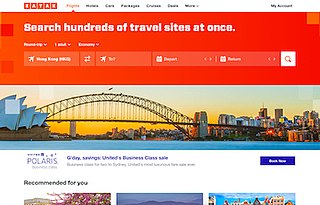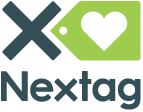Related Research Articles
Citysearch is an online city guide that provides information about businesses in the categories of dining, entertainment, retail, travel, and professional services in cities throughout the United States. Visitors to each of Citysearch's local city guides will find contact information, maps, driving directions, editorial, and user reviews for the businesses listed. Citysearch is headquartered in West Hollywood, California and is an owned and operated web site of CityGrid Media, which is an operating business of IAC. The original office was in Pasadena, California.

Yandex LLC is a Russian multinational technology company providing Internet-related products and services, including an Internet search engine, information services, e-commerce, transportation, maps and navigation, mobile applications, and online advertising. It primarily serves audiences in Russia and the Commonwealth of Independent States of the former Soviet Union, and has more than 30 offices worldwide.
Microsoft Advertising is a service that provides pay per click advertising on the Bing, Yahoo!, and DuckDuckGo search engines. In 2021, Microsoft Advertising surpassed US$10 billion in annual revenue.

Kayak is an American online travel agency and metasearch engine owned and operated by Booking Holdings.
Powerset was an American company based in San Francisco, California, that, in 2006, was developing a natural language search engine for the Internet. On July 1, 2008, Powerset was acquired by Microsoft for an estimated $100 million.

Xobni was a San Francisco-based company that made software applications and services including products for Microsoft Outlook and mobile devices. It was founded in March 2006 by Adam Smith and Matt Brezina from Adam's dorm room in Cambridge, Massachusetts, as part of the Y Combinator summer founder's program. In late 2006, it relocated to San Francisco to be closer to Silicon Valley. It was acquired by Yahoo! in July 2013 for more than $60 million and shut down one year later.
Skyscanner is a metasearch engine and travel agency based in Edinburgh, Scotland. The site is available in over 30 languages and is used by 100 million people per month. The company lets people research and book travel options for their trips, including flights, hotels and car hire.

Nextag was an independent price comparison service website for products, travel, and education. It started originally as a website where buyers and sellers could negotiate prices for computers and electronics products. Since 2000, the current business model has focused on comparison shopping. NexTag also owned Hamburg, Germany based Guenstiger.de. It provided unique and accurate functionality of tracking historical prices of a product across various sellers.
Taptu was a social media and technology company that built platforms, tools and applications that enabled content on touch screen mobile devices, including phones running iOS and Android. Taptu was a privately held company that was founded in Cambridge in 2007 and was funded by DFJ Esprit and Sofinnova. The company was based in Cambridge and Denver, Colorado.
Evi is a technology company in Cambridge, England, founded by William Tunstall-Pedoe, which specialises in knowledge base and semantic search engine software. Its first product was an answer engine that aimed to directly answer questions on any subject posed in plain English text, which is accomplished using a database of discrete facts. The True Knowledge Answer engine was launched for private beta testing and development on 7 November 2007.
Aardvark was a social search service that connected users live with friends or friends-of-friends who were able to answer their questions, also known as a knowledge market. Users submitted questions via the Aardvark website, email or instant messenger and Aardvark identified and facilitated a live chat or email conversation with one or more topic experts in the 'askers' extended social network. Aardvark was used for asking subjective questions for which human judgment or recommendation was desired. It was also used extensively for technical support questions. Users could also review question and answer history and other settings on the Aardvark website. Google acquired Aardvark for $50 million on February 11, 2010. In September 2011, Google announced it would discontinue a number of its products, including Aardvark.
Rome2rio is an Australian online multimodal transport journey planner offering traveling services globally. The company is based in Melbourne, Australia. It is owned by the German online travel comparison and booking website Omio.

Pinterest is an image sharing and social media service designed to enable saving and discovery of information on the internet using images, and on a smaller scale, animated GIFs and videos, in the form of pinboards. The site was created by Ben Silbermann, Paul Sciarra, and Evan Sharp, and had 433 million global monthly active users as of July 2022. It is operated by Pinterest, Inc., based in San Francisco.

Erply is an enterprise software company which provides cloud-based point of sale and inventory management technology. It was founded in Estonia by Kristjan Hiiemaa in 2009. As of 2010, the company has 2,000 users and 700 paid subscribers.

Brandwatch is a social media suite company owned by Cision. Brandwatch sells two different solutions: Consumer Intelligence and Social Media Management.
Google Cloud Platform (GCP), offered by Google, is a suite of cloud computing services that runs on the same infrastructure that Google uses internally for its end-user products, such as Google Search, Gmail, Google Drive, and YouTube. Alongside a set of management tools, it provides a series of modular cloud services including computing, data storage, data analytics and machine learning. Registration requires a credit card or bank account details.
Trip.com is an international online travel agency. The website is owned by Trip.com Group, one of the world's largest online travel agencies with over 400 million users worldwide, and also the parent of Skyscanner.

Gogobot was an online travel business headquartered in Palo Alto, California. The company was rebranded Trip.com in November 2016 and acquired by the Ctrip Group in 2017. Founded in 2010, by Travis Katz and Ori Zaltzman, by 2014 the company was the fifth most visited travel-planning site in the United States.
Area 120 is Google's in-house incubator in which employees work on 20% Project product ideas. It has helped develop Gmail, AdSense, Google News, and Google Cardboard.
References
- ↑ Bradshaw, Tim (September 28, 2008). "Online travel sites in unknown territory". Financial Times .
- ↑ Smith, Andrew (20 February 2008). "Idea Idol winners named". Oxford Mail.
- ↑ Baldwin, Sam (8 December 2015). "An Interview with Rachel Evatt: Skyscanner Product Director". Skyscanner .
- ↑ May, Kevin (16 April 2010). "Zoombu finally opens its tightly locked doors to the public". Phocuswire.
- ↑ Butcher, Mike (17 January 2011). "Travel search engine Skyscanner acquires Zoombu". TechCrunch .
- ↑ "Travel Search Engine Skyscanner Acquires Star Start-up Zoombu" (Press release). Business Wire. January 17, 2011.
- ↑ Butcher, Mike (September 19, 2008). "early-stage-european-startups-take-honours-at-seedcamp". TechCrunch .